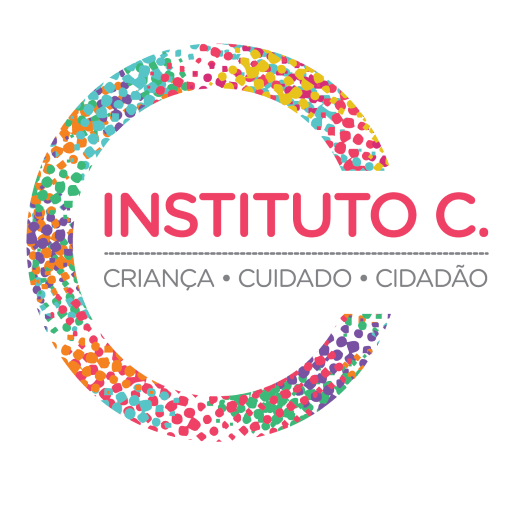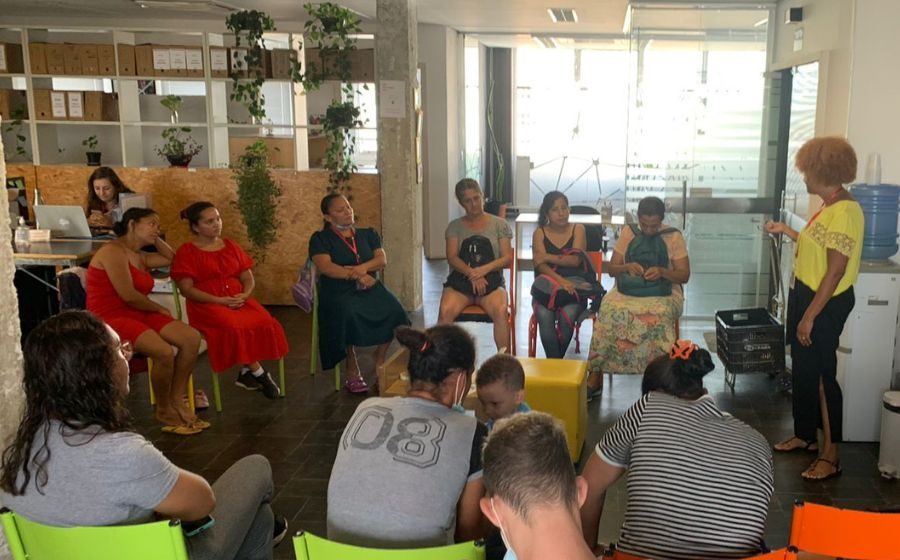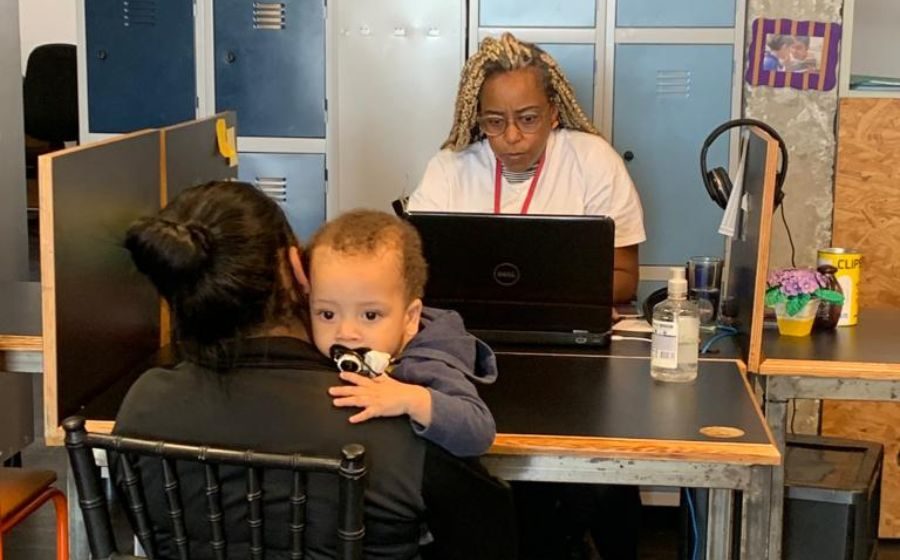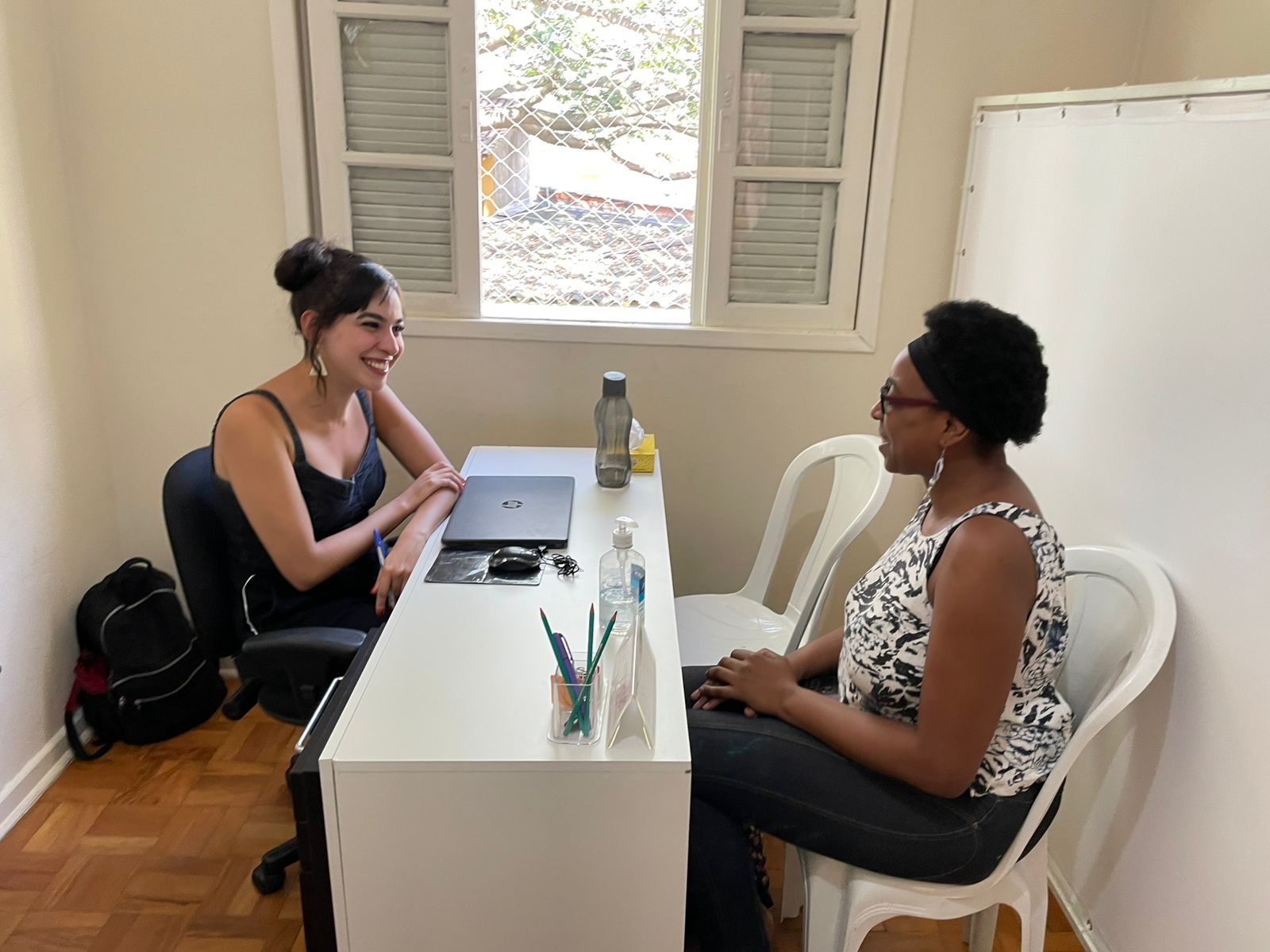Psychology at Instituto C: How Does It Work?
One of the key service areas at Instituto C is dedicated to psychology, the science that studies human behavior and mental processes.
The topic has gained even more visibility since the COVID-19 pandemic, but the truth is that psychology, when developed and applied effectively, can be an essential tool for promoting and strengthening the overall well-being of society.
At Instituto C, psychology is practiced from a social perspective, which differs from the traditional clinical and individual model known to most people. “Social psychology is a professional field and is recognized within the scope of social assistance,” explains Nayara Oliveira, institutional psychologist.
To her, this work pays close attention to issues of intersectionality, exclusion, and inclusion in society. “We work through qualified listening, taking into account historical, social, and economic contexts—especially those shaped by intersections of gender, class, and race, as well as marginalized populations such as Indigenous communities and riverine populations,” Nayara explains.
Let’s take a closer look at what social psychology is and how the psychology program works at Instituto C.
What is Social Psychology?
Social psychology is a field within psychology that focuses on understanding human behavior in social contexts.
Unlike the traditional clinical model, social psychology has a community-based and collective approach, analyzing issues always tied to the community and social environment.“The role of social psychology is to identify the strengths and vulnerabilities of the people and communities we serve, primarily from a family-centered perspective, always aiming to strengthen their potential and ensure access to basic rights,” says Nayara.
She also highlights that this understanding is relatively new in Brazil. “Recognizing someone as a subject of rights is a very recent concept in Brazilian society. It stems from the 1988 Constitution. So we’re talking about only 35 years of history in seeing people as rights-holders. Social psychology works to ensure that these rights are actually upheld.”
Furthermore, it’s important to understand that poverty and vulnerability are multi-dimensional, not defined solely by the absence of money. That’s why a qualified and active listening approach is essential—always operating ethically and in coordination with public policy access and social services.
How is the Psychology Area Structured at Instituto C?
At Instituto C, the psychology team practices social psychology. The professionals provide both individual and group sessions, such as talking circles and empowerment groups. In urgent cases, they also conduct home visits. If a need for psychotherapy is identified, they connect families to appropriate public or private services.
The frequency of these services varies by location and demand. For example, at Polo Centro, families are seen once a month in person, with remote support as needed. At Polo Zona Norte, sessions are scheduled weekly, depending on the families’ needs and staff availability.
“Psychology is guided by an ethical code, and one of its core principles is to actively fight for equality and against oppression and violence. So psychology at Instituto C is always aligned with these principles,” Nayara emphasizes.
How Do Psychology Services Work?
From a social psychology perspective, care is always collectively designed, based not only on what is said—but also on what is unsaid. “We assess family vulnerabilities not only through what they tell us, but also through what the environment and community are producing,” says Nayara.
Many forms of violence or rights violations are normalized by society due to systemic and historical structures. Social psychologists help families recognize these issues. “Gender-based or domestic violence, for example, is something that many women don’t even realize they’re experiencing. Our work involves raising awareness, amplifying voices, and not individualizing the problem,” she adds.
The Institutional Development Area
In addition to working with families, there is also a Development Team that supports the internal well-being of Instituto C staff—where psychology also plays a key role. Nayara leads this area. “Here, we don’t work directly with families, but rather with the team itself. It’s about listening to and caring for people and processes, so we can maintain strong, sustainable relationships,” she explains.
Even in this internal space, the work is grounded in social psychology, with the same lens of inclusion, ethics, and collective care.
The Benefits of Social Psychology
The fight for equality benefits all of society. And when we imagine a psychology that is not elitist or individualistic, the act of producing health and strengthening bonds becomes even more impactful. “By doing this, we prevent violence from being perpetuated or repeated,” Nayara affirms.
Of course, social psychology faces many challenges—especially in a country marked by deep-rooted oppression and inequality—but it is a real and transformative path. “Practicing ethical, inclusive care is a way to promote change. If we are trying to provide care for marginalized populations, the approach cannot be individual—it must be collective. And little by little, as we walk the path, we create the path,” Nayara concludes.




